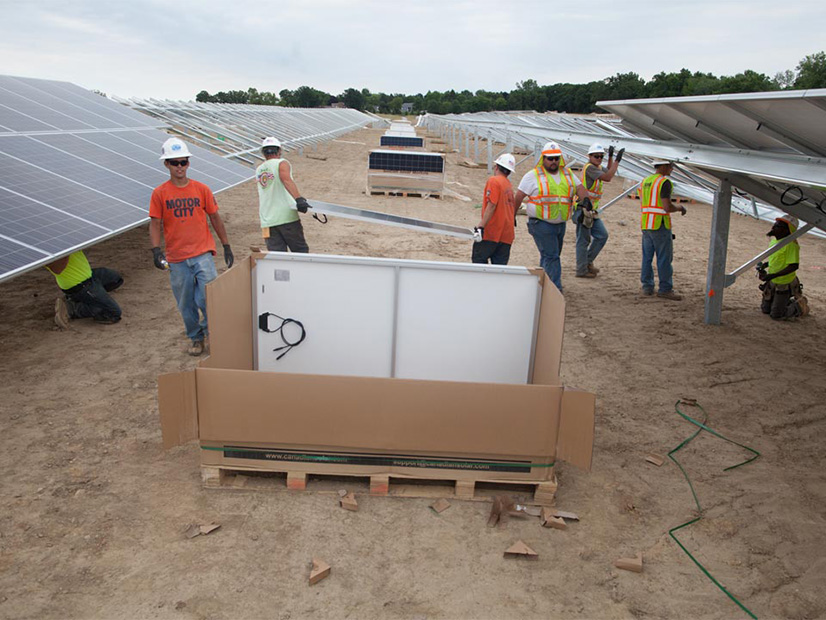FERC on Monday granted MISO’s request to give generator interconnection customers an opportunity to reduce their time in the interconnection queue from more than 500 days to a single year.
In a letter order issued Monday, the commission said MISO could offer interconnection customers a faster finish time in return for proceeding without definitive network upgrade cost information (ER22-661).
The grid operator is hoping to whittle about 140 days from its generator interconnection process by cutting the days allotted for interconnection agreement negotiations and study and performing some study aspects simultaneously. (See Shorter Interconnection Queue Coming, MISO Says.)
Interconnection customers in the final phase of MISO’s three-part definitive planning process will now have a choice to spend 60 days in the stage without waiting on a network upgrade facilities study before proceeding to generator interconnection agreement (GIA) negotiations. Their other options is to spend about 150 days in a holding pattern while they wait on a final upgrade report.
GIA negotiations will be condensed from about 150 days to around 108 days under MISO’s plan.
FERC said the reductions stand to improve the interconnection queue’s efficiency.
The commission said it was appropriate for MISO to offer “each interconnection customer a choice between a timelier path to GIA negotiations with less cost certainty or a less timely path with more cost certainty entering into GIA negotiations, based on its preferences.”
FERC said generation developers that opt for the shorter path will do so with the “understanding that their assigned costs may be refined in the final interconnection facilities study report.”
MISO has said shortening the queue timeline will help it better align network upgrade planning with its transmission expansion plan, which is conducted on an annual basis.
For years now, the RTO has placed an emphasis on accelerating hold times for generation waiting for system access in its interconnection queue. Last month, the queue held 133 GW of projects, comprising mostly renewable generation.
Some stakeholders have expressed concerns that MISO can accomplish its goal. They say the real slowdown lies in the RTO’s notoriously time-consuming affected system analyses with its neighbors. Staff have said that if the new changes don’t meaningfully shorten queue wait times, MISO will pursue additional changes.




